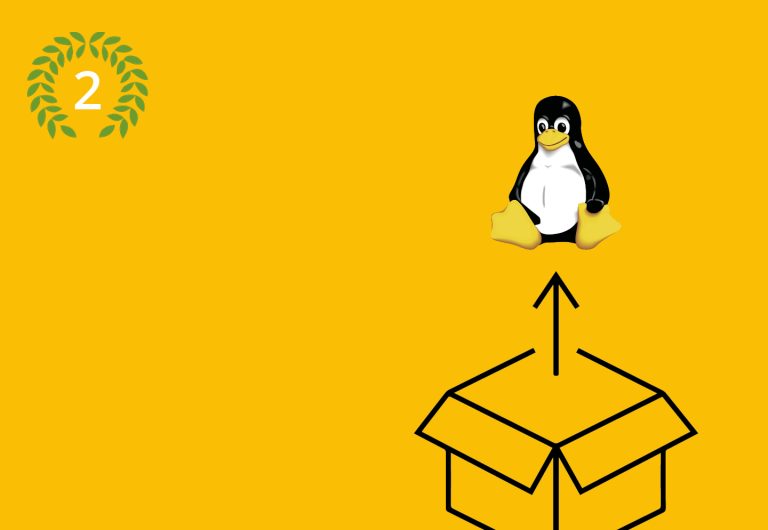The Many Meanings of Linux, Part 2 of 2

The first part of this article explored the astonishing impact of Linux on allowing an entirely free computer system, proving the viability of free and open source software, Triggering a move toward open standards and open source software, and bringing modern software within the reach of millions more people. This part concludes the article by covering the following trends:
- Restructuring the computer industry through virtualization, containers, and the cloud
- Sparking interest in the newly recognized phenomenon of crowdsourcing
- Accelerating development of new, low-cost hardware platforms
Restructuring the Computer Industry through Virtualization, Containers, and the Cloud
No one nowadays can escape cloud computing, a vague term but a useful one. The cloud is everywhere, whether you upload your photos and videos to an online service or run a business on virtual systems in the cloud. There are cloud services based on other cloud services, like the proverbial turtles that stand on other turtles. It seems like the easy thing for any company running a service is to sign up with AWS or Microsoft Azure.
Virtualization, represented by companies such as VMware, offered a proposition decades ago that corporate data center administrators couldn’t refuse: a more efficient use of hardware with significant cost savings. Then AWS launched the modern cloud era. Now containers have an even bigger impact, driving a re-assessment of what constitutes a computer application.
Besides their quest for efficiency and robust, scalable computing, the thing that draws all these trends together is their reliance on free software, notably Linux. The choice is totally practical. Who wants to count up instances of running systems and pay license fees when the systems can start up in seconds, disappear, and be replaced? Proprietary systems have defined special licenses for such situations, but the obvious choice is just to go with Linux, Xen, Kubernetes, and other free software with no baggage.
Linux is the most popular choice in data centers for another reason: it’s customizable to a degree that’s unimaginable for most operating systems. Administrators build in just the features and libraries they need for their data center. The kernel is draped in obscure configuration options meant for perfecting the use of the system for particular situations—options craved by administrators but meaningless to an end user, such as an option that chooses the queueing discipline for sending network packets. If you don’t understand what I said in that previous sentence, it just illustrates my point.
Torvalds started Linux as an alternative to the unsatisfying free software options for personal computers. When data centers grasped the value of Linux, the development team focused on meeting their needs. Linux has now had a couple decades to refine its appeal to people concerned with virtualization, containers, and the cloud. Recently, 72% of enterprises “described their cloud strategy as hybrid-first or private-first.” Meanwhile, 54% of systems in the cloud were running Linux, and Linux is probably nearly universal on containers (thanks to Docker). Virtualization, containers, and the cloud couldn’t have come so far without Linux.
Interest in Crowdsourcing
For a long time, ordinary people weren’t allowed to participate in decision-making on a corporate or government scale. Beth Simone Noveck, in Smart Citizens, Smarter State: The Technologies of Expertise and the Future of Governing, writes that in the twentieth century, universities “gradually redefined public service as a position demanding the expertise of university-educated professionals” (pp. 70-71). She underlines that professions “exclude those who do not belong to them from sharing in the body of knowledge their members claim” (p.47). And she goes on to show the limitations of those assumptions, along with remedies.
Change really started in the 1950s and 1960s, when civil rights activists were calling for a wholesale re-evaluation of “expertise.” Citing catastrophes from the Tuskegee syphilis study to the destruction of neighborhoods by highways, African-Americans started a movement for bringing into policy-making the voices of those directly affected by it. They were soon joined by other underheard populations: indigenous peoples, other people of color, women, youth, lesbians and gays, the disabled (or differently abled), mental health patients, and the poor.
I think the lessons of these movements underpinned an interest in what journalist James Surowiecki called The Wisdom of Crowds in 2004. The trend eventually picked up its own label: crowdsourcing, documented in a 2009 book by Jeff Howe.
Like Benkler, mentioned at the beginning of this article, researchers trying to grasp the new, nonintuitive practice looked at free software, because developers had spontaneously developed productive collaboration over long distances before the researchers discovered it. Everybody focused on the Linux kernel community because what they achieved in just a few years was spectacular: a re-creating of Unix that blasted its way past all the existing Unix implementations, including the BSD variants.
The Linux community was not a perfect exemplar of collaboration—far from it. Rather, we must see it as a step along the way to better online communities. Later free software developers built on the experience of the Linux community, along with other important communities such as the Apache Project. Later communities developed best practices, such as fostering diversity and excluding toxic communications. (Linus Torvalds, unfortunately, generated many such toxic communications himself—a strong contrast to the self-deprecating, jocular character he displayed in person.)
Crowdsourcing is now a major movement among governments at all levels, from the municipal to the international. One can see the health of this movement in the many projects undertaken by The GovLab, an organization founded by the Professor Noveck quoted earlier.
Meanwhile, the Linux kernel still ranks as one of the most popular and productive free software development projects. Recent developer statistics heralded “the first time more than 2,000 developers have participated in a single release cycle.” The Linux Foundation, originally created to protect the Linux trademark and other formal interests, has become the largest and most influential organization in free software, and a host for many other free software projects.
The dominance of developers paid by large corporations doesn’t invalidate the idea of peer collaboration—on the contrary, the corporate uptake underscores its enduring value. We’ll explore the corporate aspects in the next section.
Accelerated Development of New Hardware
Linux has also freed hardware. The Raspberry Pi, running a Linux distribution they call Raspbian, inspires thousands of tinkerers as well as commercial developers. To get a sense of the possibilities opened up by this hardware, peruse their magazine or Make (a magazine that originated at O’Reilly Media).
Computers are in everything; middle-class people can see that just by looking around their homes. Vendors promise “smart devices” that can track their preferences and react intelligently to their environment. There are even big hopes for the environmental and economic advantages of “smart cities.”
Now, computing in our everyday existence is brought to life by cheap hardware, enhanced by the many libraries of powerful software developed by Linux, Python, and other communities. While proprietary smart devices are likely to collect information on our behavior, free devices offer a different contract. Programmers can check the free devices and let the public know whether private data is at risk. The device manufacturers, knowing that their tracking can be tracked, may think twice about spying on users. (Security experts do track proprietary devices, too, by watching the traffic over wires or the network.)
Android must rank as the most successful hardware partner of Linux. This phone software, which runs on more than 70% of mobile phones, is not actually very open because Google controls its development, as well as the lucrative “Google Play Services” required to market most commercial Android apps. But the license is a free one, so a worldwide community of embedded systems developers are adapting Android to their devices.
Finally, Linux has been ported to more processors than any operating system in history. The wealth of software available on Linux provides an entry point for people who want to use these chips, a reassuring hand-up for both developers and chip manufacturers.
A Total Revolution
Linux is a unique phenomenon, just as liberating for under-represented world populations as it is for the world’s largest corporations. Microsoft, Amazon, and IBM, and other giant companies contribute large sums of money toward software that lets lower-class and isolated communities build knowledge and collective will.
Like all revolutions, Linux has profoundly changed ways of working and thinking for people who originally never heard of it. The economic contributions of Linux and free software are incalculable—literally, because of their uncontrolled distribution—but undeniably enormous.
Looking over the changes made by 30 years of Linux, one suspects that the next 30 will be even less predictable.
<< Read the previous post of this series | Read the next post of this series >>
